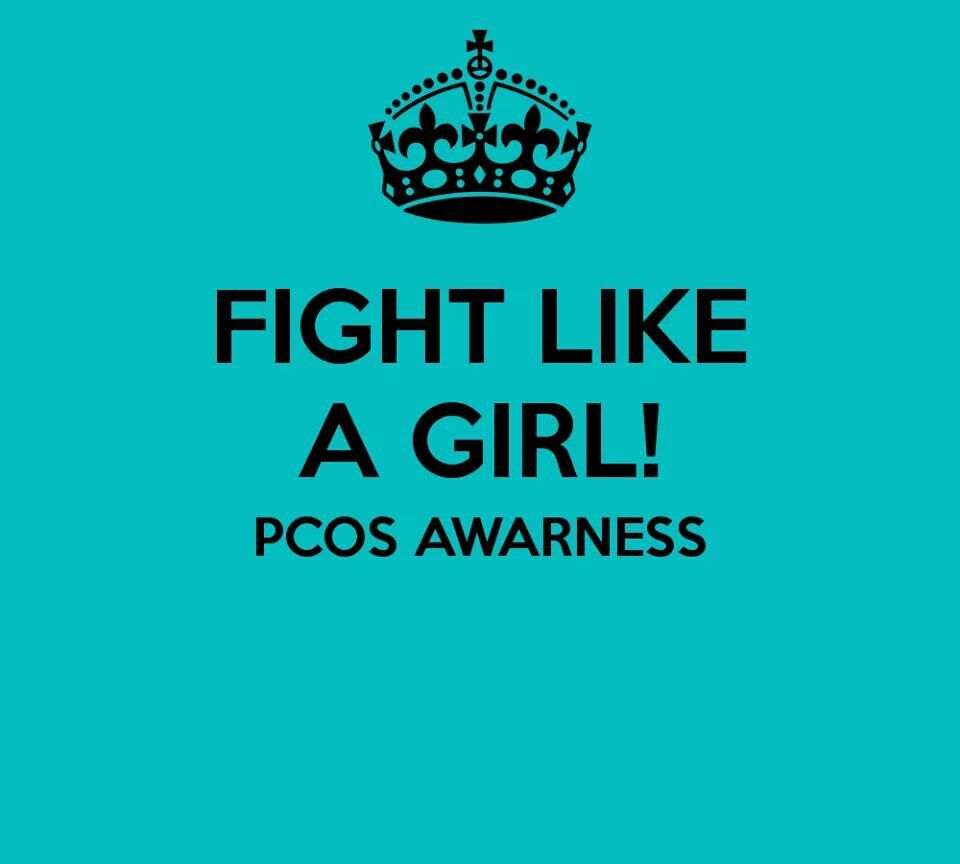A Guide to PCOS - Answering All Your PCOS-Related Questions

Polycystic ovarian syndrome (PCOS) is a hormonal disorder that is becoming increasingly common amongst women of reproductive age. The word “Poly” means many, and “Cystic” means cysts, signifying that women with PCOS may have larger-than-normal ovaries that have multiple, tiny cysts. Women with PCOS struggle with hormonal acne for a large part of their lives. While over-the-counter (OTC) acne medications rely on benzoyl peroxide, salicylic acid, and sulfur to kill mild acne bacteria, they aren’t normally enough to treat hormonal acne. Hence, treating the underlying hormonal balance is the best way to get healthier skin, hair, and nails.
Unfortunately, this disorder often goes undiagnosed due to the number of misinterpretations surrounding it. In this article, we asked Azeemah Nakhoda for her expert opinion on PCOS, in order to address all concerns and frequently asked questions about PCOS in order to raise awareness.
What is PCOS?

PCOS is an increasingly common health problem that is caused by an imbalance of certain reproductive hormones. In a healthy menstrual cycle, the ovaries make an egg that is released every month in the ovulation period. With PCOS, the egg may not develop properly or may not be released every month.
How common is PCOS?
According to studies, PCOS may affect 5-10% of women between the ages of 15-44. PCOS can happen at any age once a woman reaches puberty. Of those women who have PCOS, 7 in 10 may go undiagnosed.
We asked Azeemah Nakhoda for her expert opinion on PCOS
 Azeemah Nakhoda has done her BSC from McGill University and has a diploma in Medical Aesthetics and Laser technology. She completed her MBBS from Dow Medical College and is currently working at a dermatologist’s clinic. Here's what she had to say about PCOS: “PCOS is becoming extremely common. I work at a dermatologist’s clinic and nowadays we see more than 50% of very young, teenage girls coming in with PCOS related acne or facial growth. You don’t see a lot of older people with it. It is a relatively new problem that the young generation has sadly started to go through. “
Azeemah Nakhoda has done her BSC from McGill University and has a diploma in Medical Aesthetics and Laser technology. She completed her MBBS from Dow Medical College and is currently working at a dermatologist’s clinic. Here's what she had to say about PCOS: “PCOS is becoming extremely common. I work at a dermatologist’s clinic and nowadays we see more than 50% of very young, teenage girls coming in with PCOS related acne or facial growth. You don’t see a lot of older people with it. It is a relatively new problem that the young generation has sadly started to go through. “
What are the symptoms of PCOS?
- Irregular menstrual cycle: Tracking your period is extremely important. A normal menstrual cycle is 28 days long. Women with PCOS may miss their period or have fewer than eight cycles in a year. Their period may also come every 21 days or more often. Some women stop having menstrual cycles altogether.
- Excess facial hair: Too much beard-like growth of hair on the face and chin is a condition called hirsutism. Hirsutism affects approximately 70% of women with PCOS.
- Acne: Women with PCOS may notice intense acne on their face, chest, or upper back.
- Thinning of hair: Women with PCOS may notice fast-paced hair loss on their scalp that follows male-pattern balding. They might also notice a receding hairline.
- Weight fluctuations: Weight gain, difficulty losing weight or gaining weight are common problems associated with PCOS.
- Darkening of skin: Women may notice dark patches along their neck creases, underneath their breasts, or armpits.
- Flaps of skin: Small excess flaps of skin may also be seen in the armpits or neck area.
Common causes of PCOS?
Although the exact cause of PCOS has not yet been found, most experts think that numerous factors, including genetics, play a large part in its development. Some factors include:
- High levels of androgens: All women naturally make some quantity of androgens. These are “male hormones” that control the development of male traits such as baldness, acne and facial hair. Higher than normal androgens in women can stop the ovaries from releasing an egg during every menstrual cycle, causing acne and hair growth.
- High levels of insulin: Insulin is a hormone that controls your sugar levels and helps convert food into energy that is needed to function every day. Many women with PCOS have insulin resistance, which is when your body does not respond to normal insulin levels present in the bloodstream. The body then makes more insulin which is higher than normal. Usually, women who are overweight, have unhealthy eating habits, do not work out enough or have a family history of type 2 diabetes can develop insulin resistance.
Complications that result from undiagnosed PCOS
Symptoms of PCOS often go unnoticed, which is why it is largely under-diagnosed and under-treated. However, untreated PCOS may bring about a series of serious health conditions which include:
- Infertility
- Miscarriage/ premature birth
- Gestational diabetes or pregnancy-induced high blood pressure
- Non-alcoholic steatohepatitis- liver inflammation caused by a fatty liver
- Metabolic syndrome: a set of conditions including high blood pressure, high blood sugar, and abnormal cholesterol or triglyceride levels that raise one’s risk of cardiovascular disease
- Type 2 diabetes
- Sleep apnea
- Depression, eating disorders, and anxiety
- Abnormal uterine bleeding
- Endometrial cancer
How is PCOS diagnosed?
 There is no single test to check for PCOS. To diagnose this hormonal disorder, your doctor will inquire about your medical history, do a physical exam and prescribe different tests in order to rule out the possibility of other imbalances within the body.
There is no single test to check for PCOS. To diagnose this hormonal disorder, your doctor will inquire about your medical history, do a physical exam and prescribe different tests in order to rule out the possibility of other imbalances within the body.
- Physical exam: Your doctor may measure your blood pressure, body mass index (BMI), and the size of your waist. They may look for extra facial hair on your face and chin, and check for acne on your back. Skin discoloration and hair loss are also symptoms that they may keep an eye out for.
- Pelvic exam: A pelvic exam might be taken in order to determine signs of extra male hormones in the body such as an enlarged clitoris, and to check for enlarged ovaries.
- Sonogram: Sound waves are used to examine the ovaries for cysts and the endometrium (lining of the uterus or womb) is checked.
- Blood tests: The doctor might recommend these to check your androgen hormone levels. It is important to check hormone levels to rule out thyroid disease. The doctor may also test your cholesterol and sugar levels.
How is PCOS treated?
Doctors often prescribe birth control medication to patients in order to help them deal with PCOS. These may include a hormonal birth control pill, patch, shot, vaginal ring, or hormone intrauterine device (IUD). Other prescribed medication includes antibiotics. Metformin is a medicine used to treat type 2 diabetes and can be used to treat PCOS symptoms. Even though it has not been approved by the FDA, Metformin improves insulin’s ability to lower blood sugar, insulin, and androgen levels. After continued use, it can help restart ovulation.
Research shows that this medicine helps lower body mass and cholesterol levels, even though it has little effect on acne and hair growth. However, changes in diet and exercise play a vital role in managing PCOS. Even though there is no specific diet plan cut out for all PCOS patients, limiting carbohydrates and processed sugar helps keep the insulin balance. A low-calorie balanced diet with moderate physical activity is recommended. Those with PCOS are advised to avoid smoking as nicotine increases androgenic activity. Furthermore, smoking increases testosterone and insulin levels in the body, causing aggravated insulin resistance.
Advice from Azeemah Nakhoda to all those struggling with PCOS
“The best thing you could do if you have PCOS is to lose weight. It is very tough for PCOS patients to lose weight because of insulin resistance but there's no option around it. Lifestyle change is the most important and effective way to manage PCOS. In terms of taking better care of hair and skin, the best thing patients can do is have non-GMO, non-modified chicken, eggs, and milk.One can opt for beef and mutton too. It is important to incorporate more greens, fruits, and vegetables into your diet.
Keep in mind that not all pcos patients will have the same symptoms. Usually, pcos symptoms include: weight gain, facial hair, hair loss on the scalp, acne, and cysts in the ovaries on ultrasound but you do not need to have all of these symptoms to be diagnosed with pcos either! Pcos patients can have acne but not all acne patients have pcos. Remember that glycolic acid and salicylic acid dry acne out, so it’s an important active ingredient to keep an eye out for if you have acne for any reason!
Putting sunblock on a daily basis before going out in the sun is the holy grail of all good skincare! So, don’t forget to lather that on. Patients with PCOS must focus on improving their health internally by reducing weight and by eating organic (desi) variety of foods, and should use good quality skin products and hair products that are focused on reducing hair loss.”
It is important to know that even the best PCOS treatment will cause little good without a good skin and hair care routine, active lifestyle, and healthy eating. Make sure you:
- Cleanse your face twice a day
- Follow up each cleansing routine with a toner, serum, cream and moisturiser. Sunscreen is a must during the day!
- As tempted as you might be, avoid picking at scabs and blemishes on your face
- Stay patient- PCOS is a life-time disorder and the best way to deal with it is to take every day as it comes and not lose hope.




Comments
xxgjfqquuh —
Muchas gracias. ?Como puedo iniciar sesion?